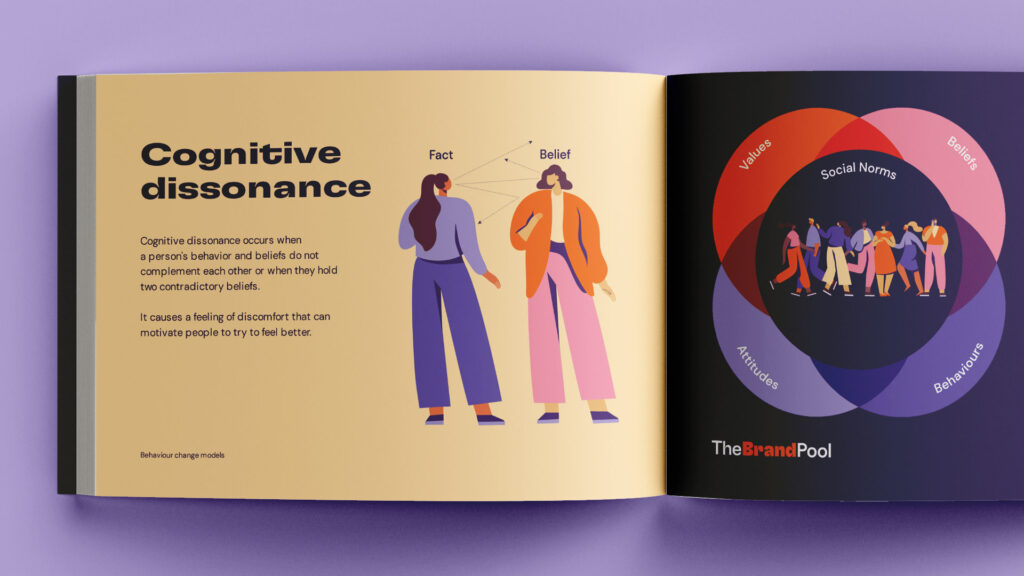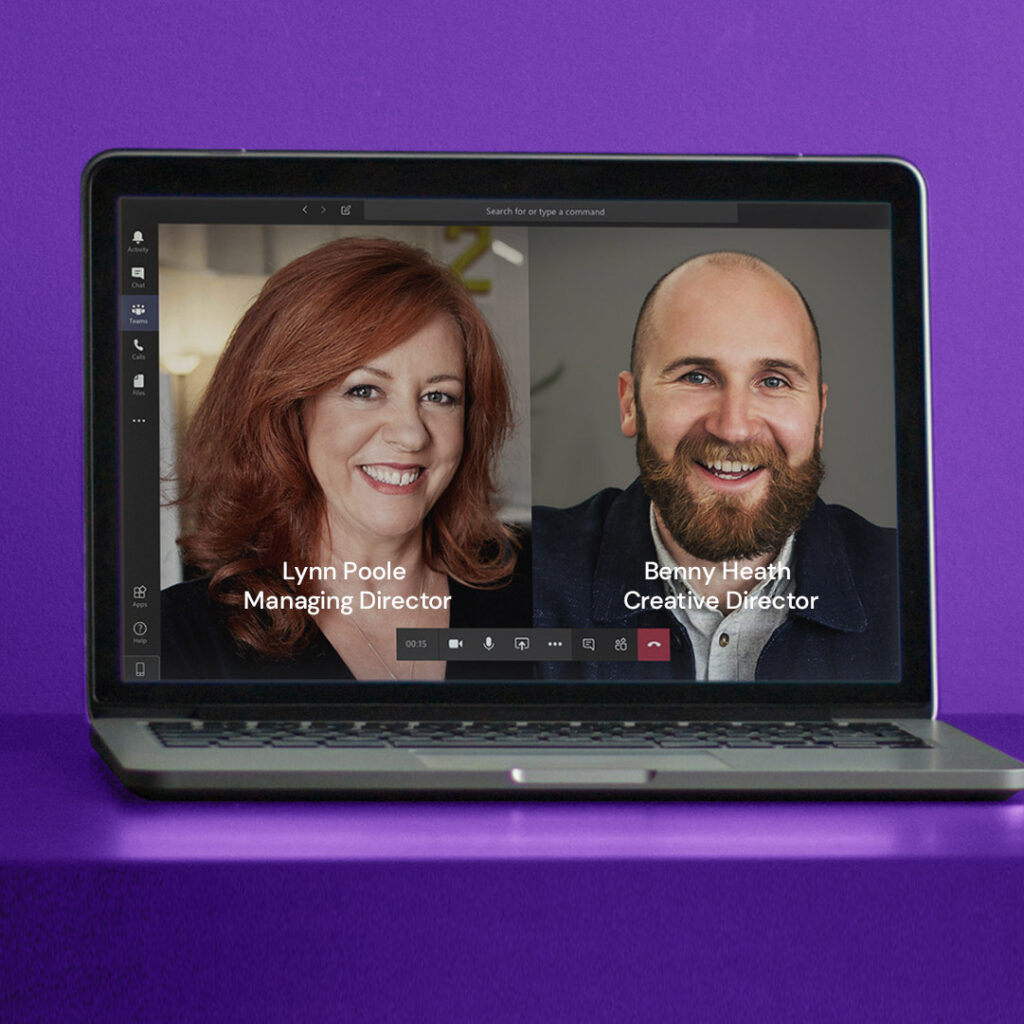Transforming behaviour starts with understanding how and what drives action.
At The Brand Pool, behaviour change models are interwoven into everything we do, providing a structured framework to help us understand, and therefore, influence, human action.
In the world of public education campaigns, selecting the right change model can enhance effectiveness, guiding the identification of target behaviours to create interventions and achieve the desired outcomes.
By using compelling materials and messaging, these models guide our strategies, leading to sustainable, positive change within communities.


At The Brand Pool, we believe that public education campaigns and behaviour change strategies go hand in hand. By identifying the most appropriate change model, you can create a narrative for your campaign that gently guides your audience to take meaningful action where needed.
For our Maitland City Council Bulky Waste campaign, we needed to acknowledge the complexities faced by individuals in aligning personal behaviours with environmental awareness. The campaign aimed to reduce the number of waste items going to landfill by educating the community on the new bulky waste services available.
By embracing the Transtheoretical Model of Change, we provided practical and achievable steps that were within the community’s reach, illustrating that individual contributions, no matter how small, collectively lead to meaningful change.
And so far, the campaign has received positive feedback, empowering the community to embrace the changes and take action. The first three month figures show the new bulky waste service is hitting its resource recovery targets, with approximately 200 tonnes of waste processed since the start of the service.
The NSW DPI Fisheries campaign, “Keep It Clean”, used the Transtheoretical Model of Change to encourage recreational fishers to adopt simple, actionable steps to reduce marine litter and debris.
By using collective terms such as “get involved” we encouraged a sense of community, highlighting that each person’s purpose and actions can play a pivotal role. As part of the campaign rollout, we created a number of short, instructional videos that offered valuable tips and modelled positive behaviours for all anglers.
The ‘Love Water’ campaign for Hunter Water followed a similar approach, identifying and encouraging a series of small steps the community could take in order to conserve water. The steps included everything from taking shorter showers, through to installing a water tank and encouraged locals to “change a little, love a lot!”
In the case of many public education campaigns, the behaviours need to become learned social norms. For our ‘Love Water’ campaign for Hunter Water, we needed to highlight the importance of water conservation by reminding the audience to respect water and treat it well.
A key insight for us was “just as love is universally treasured and valued, water should be held in the same regard due to its vital role in sustaining life.”
Using the idea of ‘love’, we encouraged the community to form an emotional attachment and desire to preserve water well into the future, not just as a short-term response. By cultivating a narrative presenting environmental responsibility as a collective endeavour, we sought to create new social norms centred around sustainable practices. Our campaign materials showed collective and individual actions to encourage lasting change within the community.
At the time the campaign was launched, households in the Hunter region were using an average of 191L of water per day, 10% higher than the national average. Since then, there has been a 10% reduction in water use, meeting the projects’ objectives.
The Health Belief Model is a framework for understanding health behaviours and encouraging action. Research shows that individuals are more likely to take action if they believe they’re at risk, think the recommended actions will help, and face few barriers to take action.
When encouraging people to prepare a robust bush fire survival plan, for instance, the lack of past experience or understanding of bush fire potential creates an opportunity for meaningful education. Our work with the NSW Rural Fire Service, “A Very Real Experience”, used virtual reality to help the community understand the impact of bush fires and the importance of having a survival plan.
By using virtual reality to bring the threat of bush fires to life, we helped people believe they’re at risk of experiencing a bush fire, and encouraged them to take action. This experience, despite being manufactured, is more likely to result in meaningful actions that lead to behaviour change. At the conclusion of the immersive experience, we provided the tools needed to create a 5-minute bush fire plan – a simple and quick step to move people from contemplation into action.
We faced a similar issue for our work with the NSW EPA, creating an education campaign addressing the lack of awareness about the harmful effects of woodsmoke on health and air quality. Cognitive dissonance also played a key role here, helping us to address the challenge of perceiving issues as a global rather than a local one.
By addressing this head-on and providing practical, achievable steps for the community, the campaign aimed to highlight that all individual contributions lead to meaningful change. We created a distinct and engaging campaign that used a quirky illustrative style to capture the attention of the community and educate them about the alternatives to wood-fired heaters and better burning practices.
We use the sense of smell to trigger behaviour change as it’s closely linked to our emotions and memory and can evoke powerful responses and influence actions and behaviours. The campaign’s key message “If you can smell it, you’re already breathing it”, served as a trigger for behaviour change and highlighted the need to take action to reduce woodsmoke pollution.
At The Brand Pool, we are experienced behaviour change specialists, who believe in creating insight-led campaigns and strategies. Reach out to us to see how our approach can create powerful and long-term results for public education campaigns.
If you’d like to discuss your public education campaign with us, email hello@thebrandpool.com.au or contact Lynn or Benny directly.
We’d love to talk about your next project. Book a 15-minute consultation with Lynn and Benny now to see how The Brand Pool can help.


Awabakal Country
PO Box 1695
Newcastle 2300
New South Wales
Australia
Wadawurrung Country
Surf Coast Shire
Victoria
Australia
We acknowledge that we work on the lands of the Awabakal and Wadawurrung nations. We wish to pay respect to their Elders – past, present and future – and acknowledge the important role all Aboriginal and Torres Strait Islander people continue to play within our region and all of Australia.
Awabakal Country
PO Box 1695
Newcastle 2300
New South Wales
Australia
Wadawurrung Country
Surf Coast Shire
Victoria
Australia
We acknowledge that we work on the lands of the Awabakal and Wadawurrung nations. We wish to pay respect to their Elders – past, present and future – and acknowledge the important role all Aboriginal and Torres Straight Islander people continue to play within our region and all of Australia.


Sign up to our newsletter and dive into great content.
Book a free consultation with us to discuss your next project.